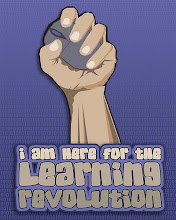"I guess it's hard for some people who are so used to things the way they are- even if they're bad, to change, and they kind of give up" (Pay It Forward, 2000).
Besides being one of my favorite movies of all time, "Pay It Forward" offers the educational world a perfect example of how public schools can produce good citizens, regardless of a child's negative outside influences.
Kevin is a 7th grade boy with an alcoholic mother. He enters his first day of social studies class and is greeted by his new social studies teacher, Mr. Simonet. Mr. Simonet assigns a project that they will work on all year. It's meant to make the students think- to inspire them. He posts, "Think of an idea to change our world and put it into action." He further encourages the kids by saying this assignment is possible- the realm of possibility exists in each and every one of them.
Besides presenting the students with an assignment that causes them to think outside of the box, Mr. Simonet is also crafting a class of citizens who are focused on positive change. While not all students come up with ideas that would be considered Utopian, Kevin's idea, to pay it forward instead of paying it back, provides the perfect example to support Stephen Macedo's argument presented in Issue #6. Macedo comments, "We cannot expect schools by themselves to transform apathetic, self-absorbed consumers into active and engaged citizens. Nevertheless, the best available evidence suggests that teaching students about current events, the political process, and how to get involved can make them more willing and able to practice good citizenship" (2004, p. 87). In fact, civic duties and service learning are areas I am extremely passionate about. I am centering my professional project around promoting cultural appreciation through literature perspective and service learning. In my opinion, assignments like Mr. Simonet's are what our schools need more of.
Chester Finn Jr. argues in opposition of Macedo in his article, "Faulty Engineering". Finn claims there's "barely enough time to cover reading, writing, and arithmetic well, much less to offset the harmful influences that may be at work on children during the other 86 percent of their lives" (2004, p. 96). For Kevin, some of these harmful influences included his deadbeat father, his alcoholic mother, his best friend who was always being harassed by the school's gang members, etc. While I don't discredit the importance and relevancy of core content area subjects, I feel assignments like Mr. Simonet's provide opportunities for students to shine and develop life skills, not just study skills. Kevin's idea to pay it forward was all he had during the darkest of days. This assignment, to make the world a better place, kept him going. Not only would assignments like these give children like Kevin a purpose, they would also be the perfect opportunity to differentiate instruction for students who are gifted or who need a challenge beyond the school's traditional day.
Allowing students to ultimately choose the direction of their year-long assignment and engage in opportunities not available within the school walls provided students with the opportunity to be good citizens, which we all know our world needs more of. Macedo comments, "Giving students a voice in the management of the classroom and the school may well increase civic skills and attitudes" (p. 87). That is exactly what Mr. Simonet provided. If you haven't watched this movie, I highly encourage you to NOT spoil the ending by watching the entire video link posted below. Rather, watch through 1 minute 50 seconds so you can see for yourself just how well this project turned out and then go rent the movie so you can watch it in its entirety!
The quote from the ending of the movie, which I included at the top of this post, really hits home when I think of how our nation views education. Is it that we are so used to how things have functioned all these years that we're scared to completely reform? Is it that we've already given up? Or is there still time to change and to take our knowledge of best teaching practices and pay it forward to our nation's children?
Saturday, October 24, 2009
Subscribe to:
Post Comments (Atom)


No comments:
Post a Comment